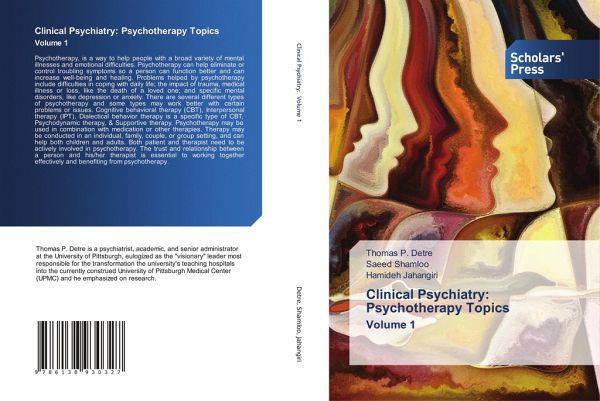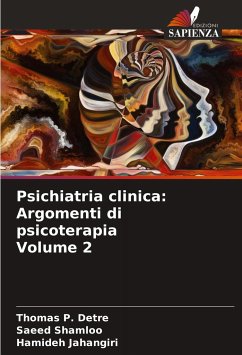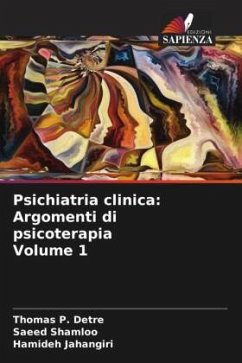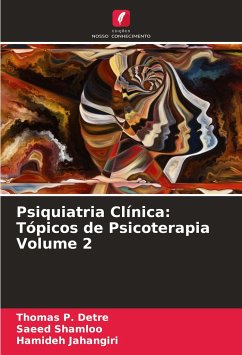
Clinical Psychiatry: Psychotherapy Topics Volume 1
Versandkostenfrei!
Versandfertig in 6-10 Tagen
82,99 €
inkl. MwSt.

PAYBACK Punkte
41 °P sammeln!
Psychotherapy, is a way to help people with a broad variety of mental illnesses and emotional difficulties. Psychotherapy can help eliminate or control troubling symptoms so a person can function better and can increase well-being and healing. Problems helped by psychotherapy include difficulties in coping with daily life; the impact of trauma, medical illness or loss, like the death of a loved one; and specific mental disorders, like depression or anxiety. There are several different types of psychotherapy and some types may work better with certain problems or issues. Cognitive behavioral th...
Psychotherapy, is a way to help people with a broad variety of mental illnesses and emotional difficulties. Psychotherapy can help eliminate or control troubling symptoms so a person can function better and can increase well-being and healing. Problems helped by psychotherapy include difficulties in coping with daily life; the impact of trauma, medical illness or loss, like the death of a loved one; and specific mental disorders, like depression or anxiety. There are several different types of psychotherapy and some types may work better with certain problems or issues. Cognitive behavioral therapy (CBT), Interpersonal therapy (IPT), Dialectical behavior therapy is a specific type of CBT, Psychodynamic therapy, & Supportive therapy. Psychotherapy may be used in combination with medication or other therapies. Therapy may be conducted in an individual, family, couple, or group setting, and can help both children and adults. Both patient and therapist need to be actively involved inpsychotherapy. The trust and relationship between a person and his/her therapist is essential to working together effectively and benefiting from psychotherapy.












